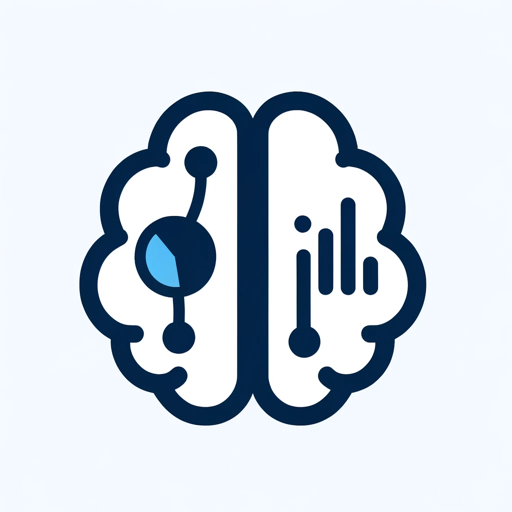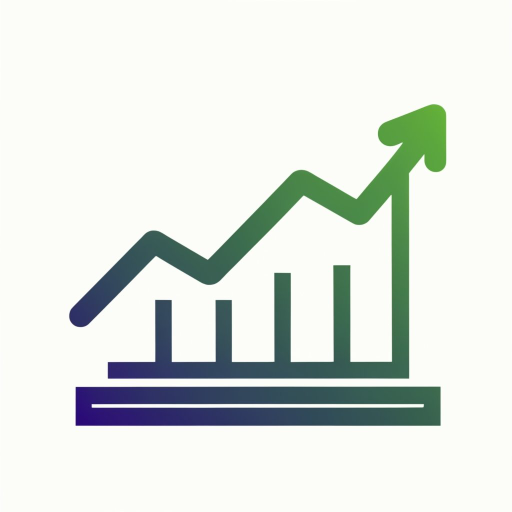DataAnalyst GPT | Intelligent Analysis 📊🤖-AI-powered data analysis tool
AI-driven insights for smarter decisions
Analyze my website's user behavior data.
How can I improve engagement on my social media posts?
What do my customer interaction data suggest about content strategy?
Analyze my e-commerce site's performance data.
Related Tools
Load More
AnalystGPT
Expert in Alteryx, Power BI, Power Automate, Python, MySQL, Salesforce, & Tableau

GPT Business Intelligence
Expert in Business Data Analysis for Strategic Insights

Data Analysis GPT
Your concise, friendly guide in data analysis.

XL Analyst GPT
"Simply upload your Excel or CSV, then leave the data analysis and visualization to me." This GPT allows for easy data analysis by simply uploading a file, eliminating the need for complex prompts.

DayTraderGPT
Provides technical analysis and trading insights. Attach a TradingView chart to get started!

CryptoGPT
Your Personal Crypto Technical Analyst
20.0 / 5 (200 votes)
Introduction to DataAnalyst GPT | Intelligent Analysis 📊🤖
DataAnalyst GPT | Intelligent Analysis 📊🤖 is a specialized AI model designed to provide in-depth data analysis and actionable insights across various data types and industries. Its primary function is to analyze complex datasets, extract meaningful patterns, and deliver recommendations that can optimize business strategies, improve content engagement, and enhance decision-making processes. The model is built to cater to professionals and organizations looking to leverage data for strategic advantages. For example, a digital marketing agency could use DataAnalyst GPT to analyze web traffic and social media engagement metrics. By examining patterns and correlations within these datasets, the agency could identify which types of content perform best, at what times, and on which platforms, allowing them to optimize their content strategy accordingly. Similarly, an e-commerce company might use the model to analyze customer purchase behaviors, identifying trends that could inform inventory decisions, marketing strategies, or personalized recommendations.

Main Functions of DataAnalyst GPT | Intelligent Analysis 📊🤖
Website Traffic Analysis
Example
A company wants to understand which pages on their website are driving the most traffic and conversions.
Scenario
Using website traffic data, DataAnalyst GPT can identify which pages have the highest visit rates, average session durations, and bounce rates. For instance, if the data shows that blog pages are driving more traffic but product pages have higher bounce rates, the company could optimize their product pages by improving content relevance or user experience based on insights provided by the model.
Social Media Engagement Metrics
Example
A brand wants to enhance their social media strategy to boost engagement and reach.
Scenario
By analyzing social media data such as likes, shares, comments, and follower growth, DataAnalyst GPT can identify which types of posts perform best and at what times. The brand can then tailor its content strategy to focus on high-engagement posts and optimal posting times, leading to increased interaction and brand visibility.
E-commerce Performance Data Analysis
Example
An online retailer aims to increase sales and reduce cart abandonment rates.
Scenario
DataAnalyst GPT can analyze customer behavior data, such as browsing patterns, cart additions, and checkout abandonment. By identifying products frequently abandoned in carts or pinpointing stages in the checkout process where customers drop off, the retailer can implement targeted strategies like offering discounts on abandoned items or simplifying the checkout process to boost conversions.
Ideal Users of DataAnalyst GPT | Intelligent Analysis 📊🤖
Digital Marketing Agencies
Digital marketing agencies can greatly benefit from using DataAnalyst GPT as it allows them to analyze large volumes of data quickly and effectively. By understanding website traffic, SEO performance, and social media engagement metrics, agencies can optimize their marketing campaigns, tailor content strategies, and provide more value to their clients through data-driven decisions.
E-commerce Businesses
E-commerce businesses are another ideal user group for DataAnalyst GPT. These companies can use the model to analyze customer interactions, purchase behaviors, and sales data to optimize product listings, enhance customer experience, and improve conversion rates. By leveraging these insights, e-commerce businesses can make informed decisions about inventory management, pricing strategies, and personalized marketing efforts.

How to Use DataAnalyst GPT | Intelligent Analysis 📊🤖
Step 1
Visit aichatonline.org for a free trial without login, and no need for ChatGPT Plus.
Step 2
Define your specific use case—whether it’s analyzing website traffic, social media engagement, or e-commerce performance data. This ensures the tool provides the most relevant insights.
Step 3
Gather and input your data. This could include traffic analytics, customer interaction metrics, or any other relevant datasets. Ensure your data is well-organized for more accurate analysis.
Step 4
Specify the desired outcomes or insights. This could range from improving content strategy, increasing engagement, or optimizing conversion rates.
Step 5
Review the generated insights and recommendations, then apply the actionable steps provided to your content strategy or business operations.
Try other advanced and practical GPTs
The Polymath
AI-Powered Insight for Every Query.

UX Design and Research. ai
AI-powered UX design and research.
Job Journey - The Resume Generator
AI-powered resume creation tailored for your job hunt.

Windows 11 Whiz
AI-powered Windows 11 assistance

SARMS Goblin
AI-Driven Insights for SARMs Usage

Data Mining Tutor 2
AI-powered data mining tutor for students.

Tabletop Map Architect
Create detailed maps for tabletop games with AI.

JurisHand AI: Vade Mecum de Direito
AI-Powered Legal Insight at Your Fingertips

Django Copilot
AI-powered Django Development Assistant

Typescript
AI-powered TypeScript Development Tool

Web Search Copilot
AI-Powered Searches, Insights Delivered.
Medical Diagnosis Analysis
AI-Powered Medical Insights

- SEO Optimization
- Market Trends
- Content Strategy
- Competitor Analysis
- Customer Insights
Q&A about DataAnalyst GPT | Intelligent Analysis 📊🤖
What types of data can I analyze with DataAnalyst GPT?
You can analyze a wide range of data types, including website traffic, social media engagement metrics, customer interaction data, e-commerce performance data, SEO and keyword performance, content engagement analytics, email campaign analytics, and competitor analysis data.
How does DataAnalyst GPT help improve content strategy?
DataAnalyst GPT provides actionable insights based on data patterns to optimize content layout, improve engagement, increase conversion rates, and enhance overall content strategy. It helps tailor your content to better meet audience needs and preferences.
Do I need any special software to use DataAnalyst GPT?
No special software is required. You can access the tool directly from your browser by visiting aichatonline.org. The platform is designed for ease of use, with no additional downloads or subscriptions necessary.
Can I use DataAnalyst GPT for competitor analysis?
Yes, DataAnalyst GPT can be used for competitor analysis. By inputting relevant competitor data, you can gain insights into their strategies, performance metrics, and market positioning, helping you refine your own approach.
Is DataAnalyst GPT suitable for small businesses?
Absolutely. DataAnalyst GPT is designed to be accessible for businesses of all sizes, including small businesses. It helps you make data-driven decisions without requiring extensive resources or expertise.